I always liked traveling to Germany. This country is synonymous with beers, sausages, pretzels, castles, punctuality and beautiful landscapes. You get it, visiting Germany is always interesting. Moreover the Germans, who might seem rather cold at first sight, are actually really nice. A trip to Germany can be a good idea if you don’t know where to go next. I’m first gonna list the places to visit in Germany and things to do in Germany, then I’m gonna share facts about the German culture and finally some Germany travel tips.

Table of Contents
Places to visit in Germany
Berlin
You cannot miss the German capital! There are numerous museums for those into culture, nice neighborhoods to explore and a nightlife renowned all over the world! Moreover there’s a vibrant music scene, cool bars and above the cost of living is relatively low for a capital in Western Europe. There are also numerous digital nomads in Berlin! It’s a dynamic city and you have to see it! Click here to find your accommodation. Click here to check the best Berlin tours. Here’s how to visit Berlin on a budget.

Oktoberfest
It’s the most famous beer festival in the world! It takes places every year from mid-September to early October in Munich, and it attracts about 6 million people! Get ready, you’re going to down liters of beer, gobble numerous giant bretzels, toast to the festival and sing in German! Don’t forget to buy a dirndl or lederhosen (traditional Bavarian clothes).

The Black Forest
Located close to the border with France, many peeople go hike the Black Forest. It’s known for its dense forest and villages dotted throughout. We call it black forest because of the dark green pine trees in the area. There are hundreds of miles of hiking trails and you can stop in the villages, stumble upon vineyards and Gothic buildings. Get there in the fall preferably.
Lake Constance
It’s a wonderful lake locates southewest of Germany, not far from the border with Switzerland and Austria. It’s the largest freshwater lake in Germany and it’s a perfect place to relax with friends or family. This is a popular destination to hike, cycle and wander in nature. The Rhine river is not far.
The Neuschwanstein castle
Another unmissable place! The Neuschwanstein castle is located in Bavaria, not far from Munich. It was built upon request from Ludwig II from Bavaria and it inspired Walt Disney’s Sleeping Beauty castle! I wrote a detailed article about the Neuschwanstein castle!
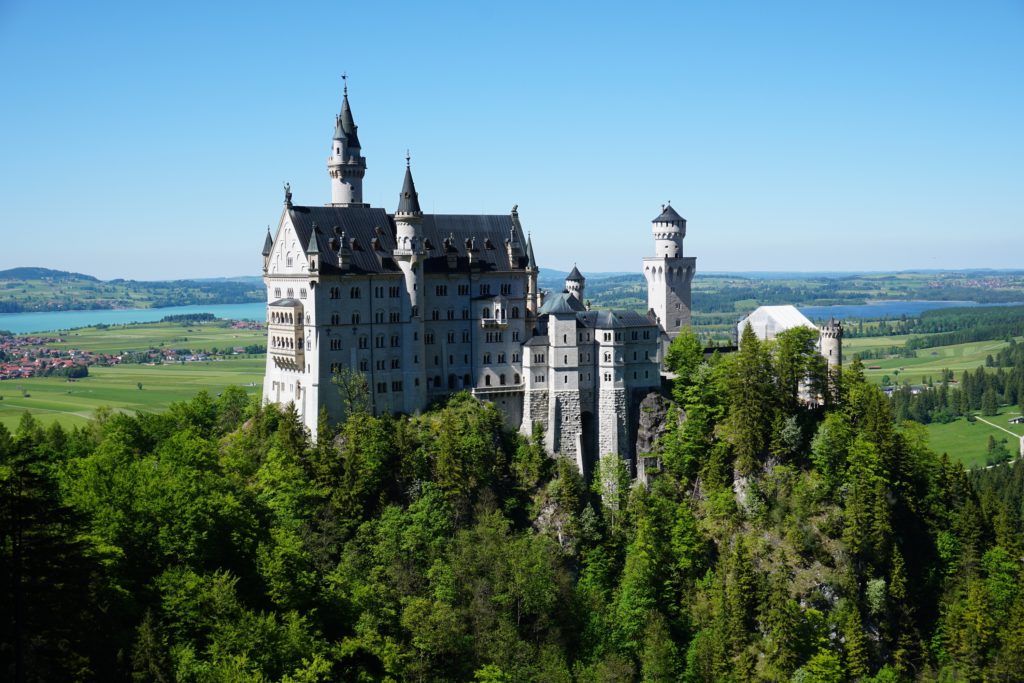
Munich
It’s the largest city in Bavaria, and it’s a city with a lot of money! Indeed it’s one of the most expensive cities in the country, but it’s a beautiful place with many things to do, wonderful green spaces, great food, and numerous museums. I wrote a detailed article about visiting Munich! Click here to find your accommodation. Click here to check the best Munich tours.

The Berchtesgaden National Park
Also located in Bavaria, the Berchtesgaden national park is a paradise for those into mountains, hiking and outdoor activities. You’ll be surrounded by lush forests, crystal clear lakes and steep rock faces. A haven of rest where you can take great photos.
Dresden
Dresden was seriously damaged during World War II but it was completely rebuilt. Young people love getting there for the nightlife. But it’s also a city with a good mix of culture and nature: there are many monuments and edifices. Dresden is called “the Florence of the Elbe”. Click here to find your accommodation. Click here to check the best Dresden tours.

Cologne
Cologne is a good option for those who love history and culture. Don’t miss its cathedral and its numerous museums! Art is also very present in Cologne, there are many international restaurant (Indian, Mexican, Japanese…) and of course many cafés and pubs. Click here to find your accommodation. Click here to check the best Cologne tours.
Hamburg
Hamburg is the second largest city in Germany. It’s known for its green spaces and its canals. It’s not the most beautiful city in the world but Hamburg has its charm. You cannot miss the city center, the port (the second largest in Europe) and the Alster lake. I wrote a detailed article about my visit to Hamburg. Click here to find your accommodation. Click here to check the best Hamburg tours.
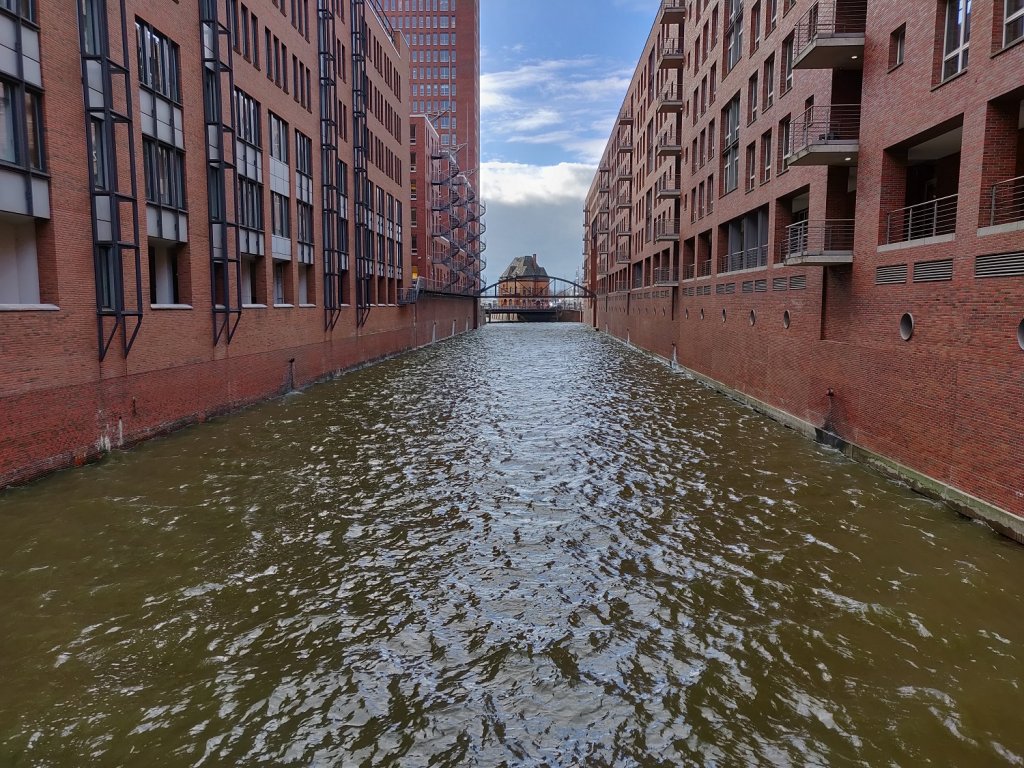
Ballinstadt
It’s a museum in Hamburg and you have to visit it. It explains how thousands of Europeans (especially Jews who were persecuted) left Europe to go to America, in hope of a better life. I wrote a detailed article about Ballinstadt, the emigration museum.

These were the places to visit in Germany! You can also check out these UNESCO World Heritage sites in Germany! Now here are a few things to know about Germany!
Cash is king
It’s quite surprising coming from a developed country but many places don’t take credit card. At the bars, the restaurants, the train stations, in stores… They only accept cash. So make sure to always have cash on you to avoid an embarrassing moment when you have to pay.

Everything is closed on Sundays
It seems like they take seriously the Lord’s day in Germany. Indeed, almost everything is closed on Sundays. Supermarkets, stores, malls… Consequently, even big cities are relatively quiet. Don’t plan a dinner at the restaurant or a shopping spree on a Sunday. However museums are open (they usually close on Mondays).
Everyone speaks English
If you don’t speak German, don’t worry too much. Almost all the Germans speak English. That doesn’t mean you should expect people to speak English in a foreign country, but you’ll quickly notice you can communicate with the locals, especially in big cities. However in the countryside you have to speak German. The elderly don’t speak English. So it’s better to learn some basic words in German. It’s handy, and the locals will appreciate it!
Water at restaurants is not free
It can be surprising first because back home, water is free and unlimited at the restaurant. It’s not the case in Germany so don’t be surprised if you see a line “bottle of water” when you check the bill. You also need to know that when you ask for water at the restaurant, you get sparkling water by default! You need to be specific and say you want still water! Finally, tipping is expect but is is nowhere near as much as in North America.

Few vegetarian options at the restaurant
I’d rather say “few vegetarian options when leaving the big cities”. In Berlin, Munich or Hamburg you can get by. But if you’re going to rural Germany, you’ll have a hard time finding vegetarian dishes at the restaurant (don’t forget they like sausages in Germany!).
There are supermarkets everywhere
Unless you want to buy groceries on a Sunday, you won’t have a hard time finding a supermarket in Germany. They’re everywhere! Moreover the products are usually cheap, I was suprised! At the checkout, you’ll notice the cashiers scan the items veeery quickly. Another important thing is to bring your own bag, they don’t give them away (you can ask for one but you’ll have to pay).
No small talk
The Germans are very direct, they go straight to the point. When you talk with them, they won’t exchange with them but get straight to the point. It can be disturbing, this is just the way they are. For instance at the restaurant, the waiters won’t ask you how you’re doing, like back home. The customer service in stores can seem frosty, but they just want to be efficient.
You can’t pee for free
This is something I just can’t understans, having to pay for a natural need! Toilets are not free in Germany! Either at the train station, the mall, in the club and even McDonald’s! You’ll have to pay between 50 cents and one euro. I said it earlier, always have cash on you!

Recycling
The Germans don’t joke with recycling. When you pay for instance a can, a bottle or a mug, you’ll pay a higher price than the listed price because you’ll pay a tax called “Pfand”. It functions as an incentive for you to return those items to get your money back. You’ll notice the Germans are recycling obsessed, to a level I haven’t seen anywhere else in the world.
Punctuality
Punctuality is a subjective term. Its meaning varies depending on the country. In Germany they’re very punctual. Meeting your friends at 3pm? Send them a message if you think you’ll make it at 3:03pm. Public transport is also very punctual and leave the station on time! Get to your bus/train/tram on time, otherwise it’ll leave without you!
Don’t walk on the bike lane
It’s not easy because the division between the path for bikes/for people is not always very clear. And believe me, if you end up by accident wandering on a bike lane, you seriously risk getting hit by a cyclist in a rush. Keep your eyes open and walk on the sidewalk, not on the bike lane!
Do not jaywalk
We’re kinda savage and uncivilized in Paris, where I live. In Germany, it’s another story. It’s frowned upon to jaywalk. It’s even worse if you do it when there are kids around! Also, do not cross the streets when the light is red for pedestrians! It’s also frowned upon, even if there’s not a single car in sight!
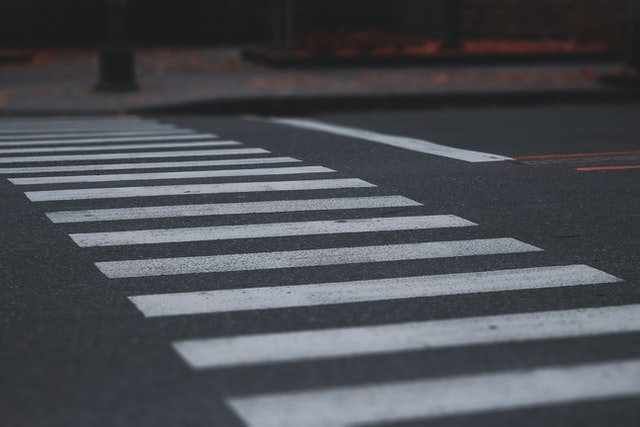
Driving is easy
Driving is relatively easy. Renting a car is also very simple. The Germans usually know how to drive, the roads are good and there are no twisted rules you have to know. On the highway there are no tolls. Do not drive on the left lane, there are cars whizzing by as you drive on the right lane. Unlike what many people think, there are only some sections on the highway with no speed limit. Finally, most Germans drive a stick shift so this is the default car you can find at rental agencies. If you only know how to drive automatic, make sure to get an ‘automatic’ car.
Taxis are expensive
If you think about getting around in taxi, you need to know they’re expensive. Actually very few Germans use them because public transport is effective. Therefore taking a taxi is not cheap and they’re not easy to find anyway. There are not many. There are also few vehicles for hire (Uber is forbidden in Berlin and Hamburg).
Germans don’t speak loudly
You’ll notice most Germans don’t speak loudly. They rarely raise the tone. Public transport is very quiet. If you start talking in the train, the whole wagon will be able to hear you. Don’t speak too loudly in general. You can actually raise your voice when singing German songs at the bar after a few beers.
There are many nudists
Don’t be surprised if you see sometimes naked people in the open air. For instance, you can see nudists in the English garden in Munich. In the saunas and spas it’s completely normal to walk around naked. You might be shocked but it’s completely natural in Germany.
Here are several Germany travel tips now.
Germany travel budget
- Accommodation is not that expensive in Germany. Hostels range from 10 to 25 euros per night for a dorm room. You’ll pay between 45 and 65 euros per night in a budget hotel. For a mid-range hotel, expect to pay between 60 and 100 euros. Luxury hotels start at 150 euros per night. Click here to book your accommodation. You can also check out this post listing the best castle hotels in Germany.
- Again, food is not very expensive. The street food costs around 2-4 euros. Meals at the beer halls cost between 9 and 15 euros. A beer is 4-5 euros, a sandwich about 5 euros and a meal at the restaurant about 15-20 euros.
- Regarding transportation, a single metro/bus ticket costs between 1 and 3 euros depending on the city. Renting a bike costs around 18 euros per day. Intercity buses cost between 15 and 30 euros, a train ride between 40 and 70 euros and high-speed trains at least 100 euros.
- Regarding activities, museums cost between 1 and 15 euros, a city tour between 12 and 25 euros and a bike tour or river cruise between 25 and 40 euros.
Basically, if you’re traveling on a budget, you can get by with 40 euros per day. Otherwise you’ll spend about 100+ euros per day.
How to get around in Germany
Public transport is very efficient in Germany, I recommend using them! You can also rent a bike per day. Bicycles are very popular in Germany. I recommend not taking taxis, they’re expensive. The trains are also very efficient. Here’s how to buy a train ticket in Germany. Think about taking intercity buses, they’re not expensive. I use Flixbus. Finally, you can think about ride-sharing or try hitchhiking, which is safe in Germany.
Best time to visit Germany
Germany is a year-round destination. To me, it’s better to get there from April to September. The weather is nice and you can fully enjoy the green spaces, lakes, outdoor bars… Getting there in the fall can be nice especially to take great photos of the foliage in Bavaria. The winter is cold but the Christmas markets are popular and you have to see them.
Visa policy of Germany
If you’re an European citizen or coming from a Western country, you don’t need a visa to get to Germany. You can find all the details here.
Safety in Germany
Germany is not a dangerous country. There are few crimes, pickpockets or terrorist attacks. Still, watch out for scams targeting tourists. I wrote a detailed article about common travel scams. Generally speaking, always trust your instinct. And don’t forget to get travel insurance. It will protect you against illness, injury, theft and cancellations. Click here to get one.
Packing list for Germany
I’m not gonna list all the things to pack for Germany. I don’t know how long you’re gonna stay there, where you’re going in Germany, what you’re going to do and when you’ll visit. Take all the necessary clothes, toiletries, and also:
- Band-Aids
- earplugs
- hand sanitizer
- combination locks
- a money belt
- a security cable lock
- a travel plug adapter
- a stainless steel water bottle
- a lifestraw (a water bottle with a purifier)
- a menstrual cup (for the ladies)
Here’s a full list of travel accessories, which can be useful!
What to eat in Germany
There is of course the street food and the currywurst, but there are also typical German dishes. Bratwürste is a German sausage you have to try. Spätzle is a kind of pasta consisting of eggs, flour, some water and cheese. Maultaschen is a ravioli dish packed with minced meat, or spinach or anything that takes your fancy. And don’t forget the pretzel!
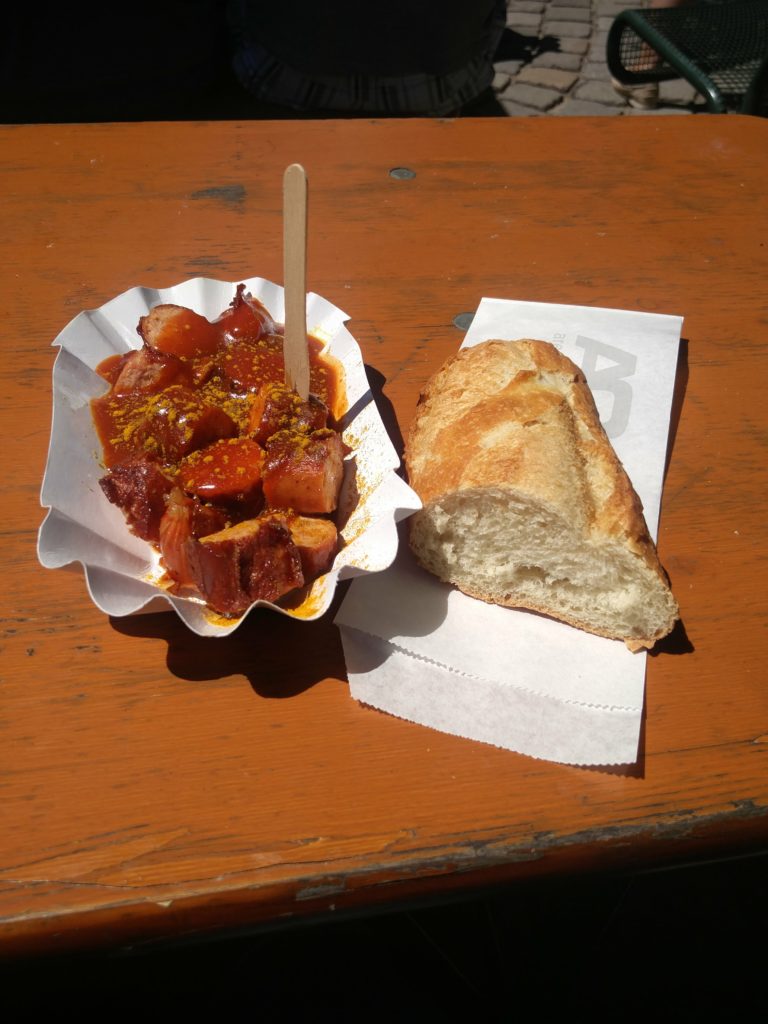
Books to read about Germany
- The book thief. It’s about Liesel Meminger, a young girl living in Munich in 1939. She steals books, read them, and share them with her neigbors. We learn about the daily life of Germans during World War II. A must read.
- The boy in striped pajamas. There was a movie adaptation. We’re following Bruno, a 9-year-old boy. His father received a promotion and the whole family had to move to Auschwitz…
- The Tin Drum. It’s about Oscar Matzerath, a boy who stopped growing up at the age of 3 and takes up drumming instead. A weird story, but you have to read it.
That’s it! You have all the information needed to travel to Germany! Everything will go smoothly thanks to this guide!
- Traveling soon? Check out my travel resources page!
- Want a tailor-made trip to Germany? Get a free quote here!
- Always use a VPN when traveling. I use ExpressVPN and I love it! Here’s why use a VPN when traveling.

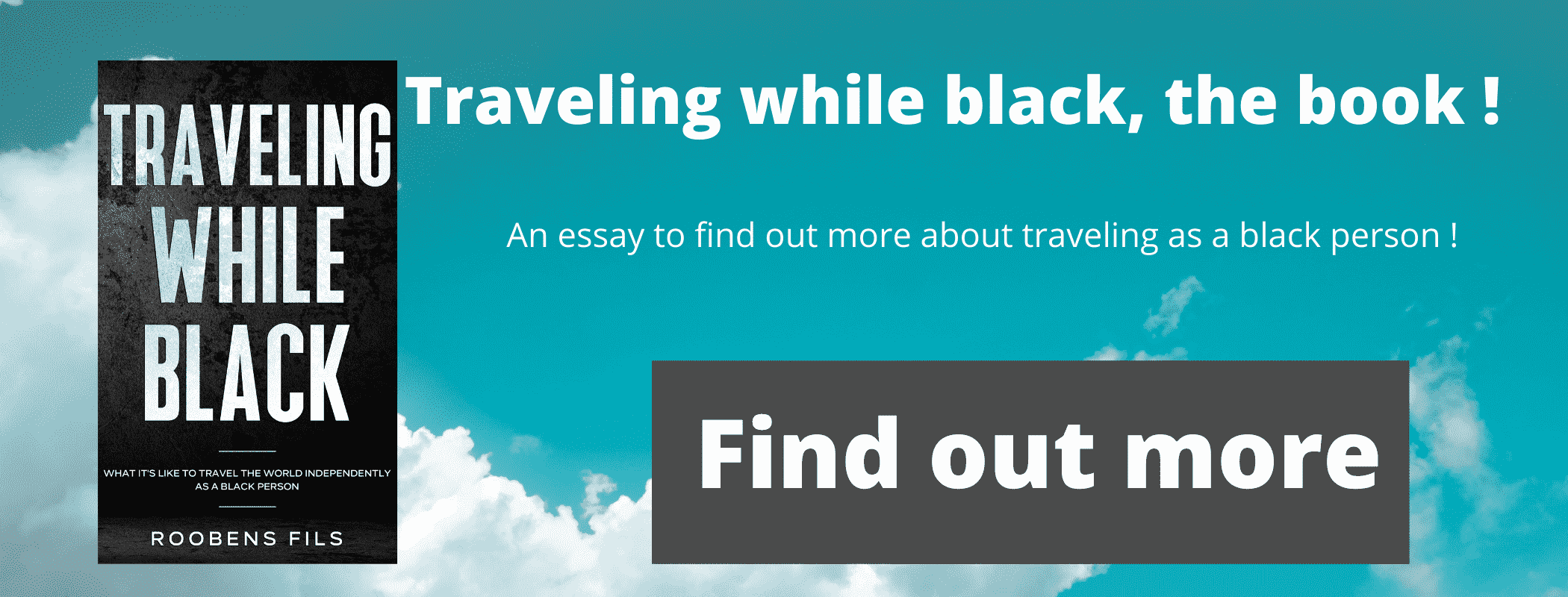
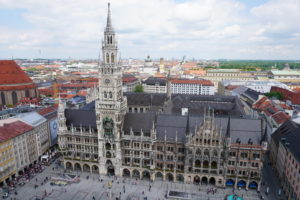




[…] on planning your trip to Germany, a guide on where to go, the best places to visit, and other key Germany travel tips to make the most of your […]